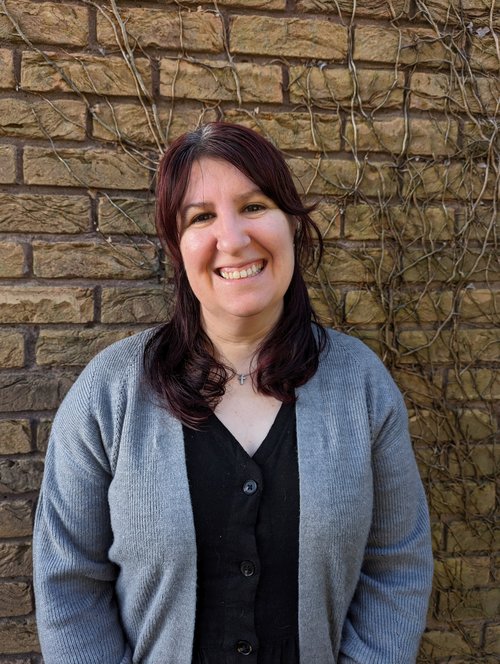Deaf Awareness Week 2025
“Hearing loss and deafness is an invisible disability. You can’t tell if a person is deaf or hard of hearing just by looking at them. Especially if they are like teenage me, who styled her hair purposely to hide her “embarrassing” hearing aids,” writes Llandaff and Monmouth Diocese’s Deaf Community Mission Outreach Worker, Nicola Roylance.

Nicola is passionate about sharing Jesus with people who may not hear about Him in traditional ways. Here she explains why inclusivity matters and highlights some small steps churches can take to be more welcoming to people with hearing loss:
Nowadays I am confident in my deaf identity, but it took literally years to be comfortable asking people to repeat themselves, to face me when they are talking to me or to ask for access to assistive devices that some public buildings have.
Teenage me would have been mortified of bringing attention to her deafness. She spent her time nodding along, hopefully in the right places, and straining to understand teachers or preachers rather than ask for them to switch the loop system on.
Many people are still like teenage me, embarrassed by their hearing loss and/or hearing aids. How can we as churches, help those people without drawing attention to them?
A quick checklist could be:
*Ensure the loop is always switched on and that it works.
*Ask all speakers to use the microphone, ensuring their voice goes through the sound and loop system.
*Put all important information in writing, whether in a newsletter or on the screen so that no one misses out.
There are many more ways we can be deaf aware but putting these 3 things in place immediately increases accessibility and inclusivity without drawing attention to those who are not comfortable being singled out.
Teenage me would have been very grateful and I know other people will be too.”
If you'd like information about Deaf Awareness Training, Basic BSL Classes or resources drop Nicola a message on nicolaroylance@cinw.org.uk